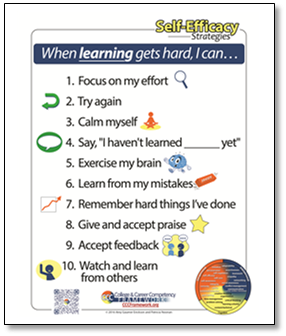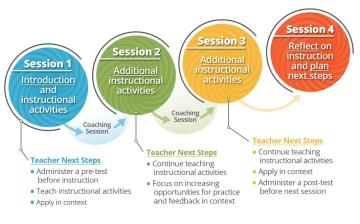
Postsecondary Transition

A comprehensive, online, career development and planning program that is provided free of charge to all Missouri citizens. Funded by the Missouri Department of Elementary and Secondary Education (DESE), this program supports the career development efforts of schools, community organizations, and adult job seeker programs.
- 2025 Transition Training Institute
The 2025 Transition Training Institute was a success, offering meaningful experiences and valuable insights for all attendees! The virtual keynote presentation, The Ride Ahead, featured father and son, Dan and Samuel Habib, and captivated the audience with Samuel’s personal story. As a 21-year-old adult with a disability, Samuel’s journey toward independence – navigating housing, employment, relationships, and many barriers young adults with disabilities often face – was both powerful and relatable. The screening was followed by an engaging Q&A session, where students, educators, administrators, and other collaborators had the opportunity to interact directly with Dan and Samuel, deepening the impact of the presentation through personal reflection and discussion.
Breakout sessions addressed a wide range of topics critical to successful postsecondary transition planning. Participants gained timely and relevant information on current programs, research, and initiatives while connecting with agency partners, Regional Professional Development Center consultants, and Transition Liaisons. These sessions provided rich opportunities for professional networking and collaboration, supporting the shared goal of helping youth with disabilities prepare for meaningful futures.
- Accessible Educational Materials (AEM)
- Career Education Special Needs (CESN)
- Career Technical Education (CTE)
- College and Career Competencies
Free Professional Development for Missouri Schools

The College and Career Competency Project
supports educators in systematically embedding Self-Efficacy instruction into course content helping students become more resilient learners. Students learn to apply 10 different Self-Efficacy strategies that help them persevere through challenging tasks, improve confidence in their abilities, and help them overcome setbacks more easily.
Educators have seen the following impacts fromSelf-Efficacy instruction:
- Increased belief that ability grows with effort
- Improved confidence in their own abilities
- Increased willingness to accept challenging learning, and
- Improved ability to manage emotions.
The College & Career Competencies Project is a professional learning opportunity for Missouri schools offered by the Department of Elementary and Secondary Education (DESE) in collaboration with the University of Kansas Research Collaboration. Four selected schools will receive free, professional development that includes training, coaching, assessments, curriculum, and parent guidance materials that educators will use as they implement instruction that leads to enhanced student persistence, resilience, and self-efficacy. Schools are also encouraged to designate two individuals who will receive additional training on competency coaching techniques so they can provide on-site guidance and support to their colleagues throughout the implementation process.

The College & Career Competencies Project is accepting applications for K-12 schools for the 2024-25 school year. To apply download the application here. Once you have completed the application, email it to Gwen.Deimeke@dese.mo.gov. Applications are being accepted through July 15, 2024. You will be notified of a decision by July 17.- Missouri Transition Planning - Resource Locator
This document provides recommended resources, services, and activities for students with disabilities as they prepare for life after high school.
- Missouri Interagency Transition Team (MITT)
The Missouri Interagency Transition Team (MITT) is a state transition team, which addresses data-driven goals for improvement and collaboration with the shared vision of improving employment, independent living, and postsecondary education outcomes for Missouri students with disabilities. The MITT Collaborative Programs and Projects is now posted. Once finalized, you will find the link posted here. This booklet will provide information regarding the various agencies that are represented by the members of the MITT.
2025 Missouri Interagency Transition Team (MITT) Meetings September 25, 2025 – Virtual – 1:00 p.m. – 2:00 p.m.
November 20, 2025 – In-Person – 10:00 a.m. – 2:00 p.m., Truman Building, Room 500
January 22, 2026 – Virtual – 1:00 p.m. – 2:00 p.m.
April 9, 2026 – In-Person – 10:00 a.m. – 2:00 p.m., Governor’s Office Building, Room 315- Postsecondary Transition Liaisons
Missouri Postsecondary Transition Liaisons are practicing educators from across the state who dedicate their time and expertise to strengthening local secondary special education programs. These liaisons work within their own districts to enhance postsecondary transition practices for students with disabilities and are also available to support neighboring districts. Liaisons actively share resources and strategies at both district and regional levels, helping to build a collaborative network focused on improving postsecondary outcomes for youth with disabilities.
- Social-Emotional Learning for All (SEL-A)
Social-Emotional Learning for All (formerly Missouri Postsecondary Success (MPSS)) is a multi-year transition and College and Career Competency (CCC) improvement initiative that provides face-to-face professional development and online support to interdisciplinary high school teams. Teams learn to effectively teach and sustain the development of competencies which lead to success in both career and college settings. Teams analyze data, choose evidence-based instruction and work with stakeholders to provide ongoing supports to students as a part of the classroom experience.
- Show-Me SEL
- For additional resources or if you have questions, please contact your
local Regional Professional Development Center (RPDC) Last Update 1/21/2025.
- Early Warning Signs
Early Warning Signs is a data-driven decision-making process allowing educators to identify students at-risk by examining the underlying causes, match interventions to student needs, and monitor the progress of interventions. EWS examines five essential areas:
- adult advocates
- academic support
- classroom/social/behavioral issues
- personalized learning environment/Instructional practice
- necessary skills for graduation and postschool success
Using data indicators are most predictive of a given student outcome as a “warning sign” that a student is in trouble. This system allows educators to track interventions assigned to particular students and track the associations between interventions and outcome for students.
- Early Warning Indicators
- "How Early Warning Systems Can Help Your Students and School Succeed" (37-minute video presented by Dr. Robert Balfanz)
If you need additional resources or have questions, please contact your Regional Professional Development Center (RPDC).
- Pre-Employment Transition Services (Pre-ETS)
Pre-Employment Transition Services (Pre-ETS) offers no-cost transition services to Missouri public school students with disabilities, ages 16-21, who are eligible for vocational rehabilitation services. These services are designed to make an impactful difference for students with disabilities at an earlier age which leads to better coordination, enhanced communication, stronger collaboration, and increased successful post-school outcomes.
Pre-ETS is contracted by the Missouri Department of Elementary & Secondary Education (DESE) division of Vocational Rehabilitation (VR).
- Missouri Vocational Rehabilitation
Vocational Rehabilitation
If you want to work but have a disability that keeps you from finding, keeping, or advancing in a job, VR may be able to help.Introducing Vocational Rehabilitation Services MO: Simply Said - YouTube



